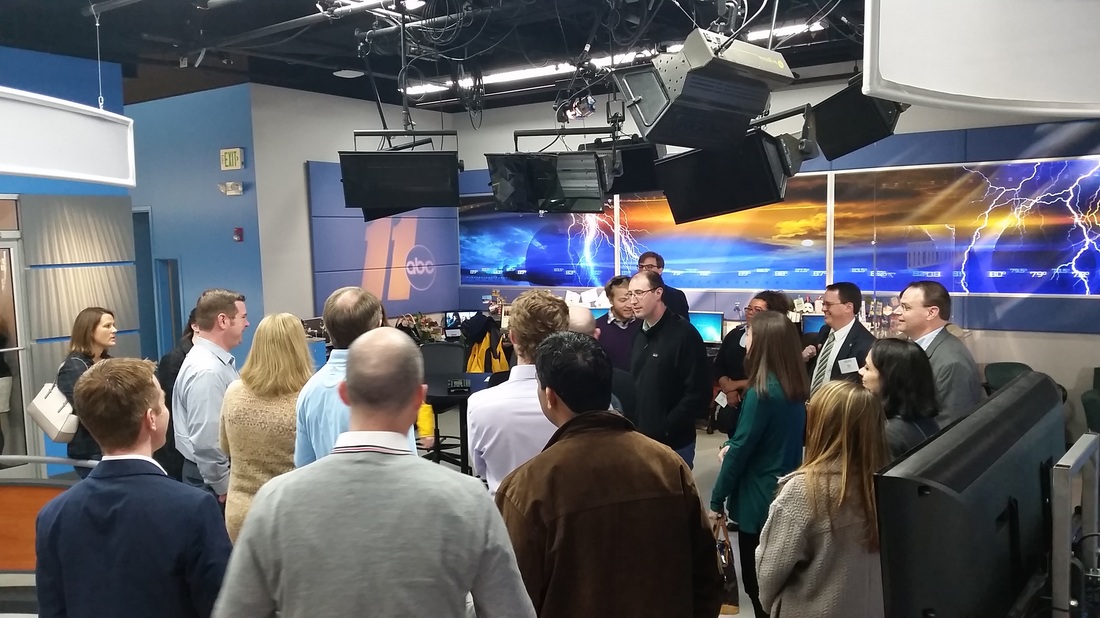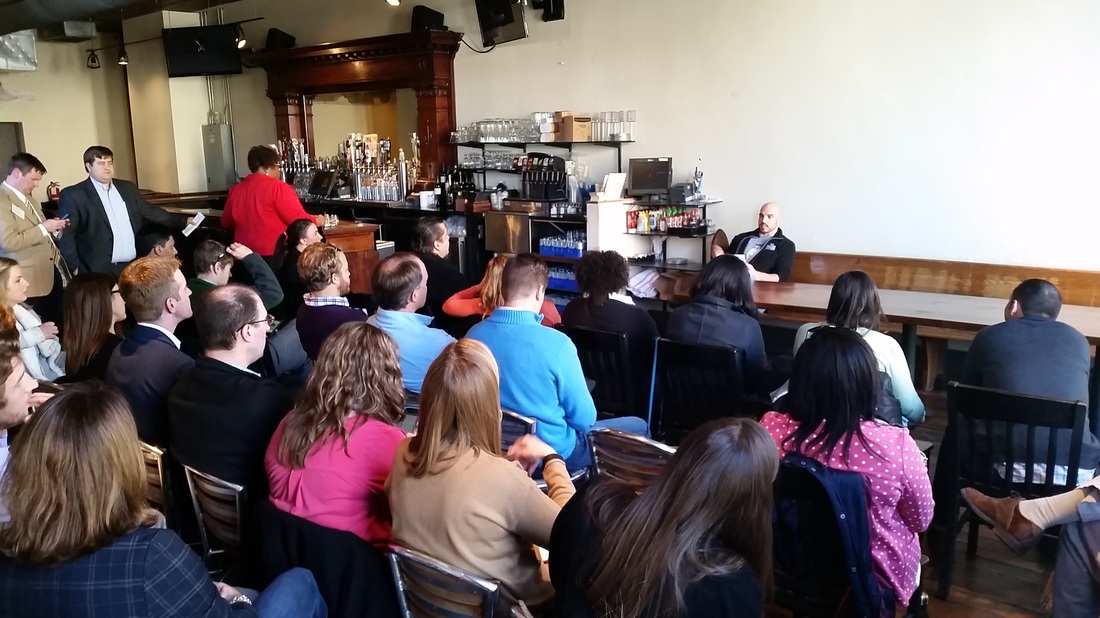 By Melissa Everitt, LR 32 Regional Employee Relations & Development Manager Resolvit, LLC Mass media—it’s everywhere. Television, billboards, radio, Internet, live events, newspapers, mobile devices, the sides of buses and buildings, and the list goes on. No matter what your professional career, media directly impacts you and your organization on a daily basis. On Thursday, Feb. 18, my Leadership Raleigh 32 classmates and I heard from an array of professionals in the media industry to give us insight on how media affects our day-to-day working lives and how to respond to it. Throughout the day the class heard from a variety of professionals from corporate, education, public, and private sectors. The main theme of their presentations was how relationships with the media have changed over time. A panelist talked about how companies can drive their own media attention by telling their stories through various channels, encouraging reporters and media outlets to pick up on bits of information through social media, press releases, and announcements made by the companies. Other main points made by some other professionals about media and relationships included:
Our guests also talked about the importance of being transparent, honest, and open with communicating to and through the media. Having a strategy and plan that supports your organization’s brand and mission is critical to you organization’s success. Knowing and recognizing the importance of online forums and social media provides the opportunity to listen and learn from online engagement. Allowing your organization’s supporters, followers, and counterparts to develop relationships with you through various means of communication will assist then in understanding your strategy and mission. It became clear to me and my LR32 classmates by the end of the day that working with the media is more than deflecting unwanted questions from a reporter about the most recent debacle that happened at work last week. It is more than posting a few tweets on Twitter to keep our organization’s followers in the know. It is more than sending out a quick press release about a recent accomplishment or organizational award. The consistent message throughout the day came down to this—driving organizational branding and awareness through the use of various media outlets includes thoughtful, strategic, and continuous planning. One of the best ways to accomplish this is to proactively develop positive and meaningful relationships with the media— reporters, announcers, writers, and journalists—as well as with all of your organization’s internal and external constituents. Just like all relationships in life, these partnerships should and can be mutually beneficial, positive, and supportive for all parties involved. Learn more about Leadership Raleigh
Leadership Raleigh prepares the leaders of tomorrow. During the nine-month program, participants get an in-depth view of community issues, develop leadership skills necessary to assume leadership roles, and are exposed to community involvement opportunities. Applications for the 2016/17 program year will be available in late February. Learn more at www.leadershipraleigh.org.
0 Comments
|
AuthorGreater Raleigh Chamber of Commerce Archives
July 2024
Categories
All
|
|
Greater Raleigh Chamber of Commerce
800 S. Salisbury St. Raleigh, NC 27601 |



 RSS Feed
RSS Feed